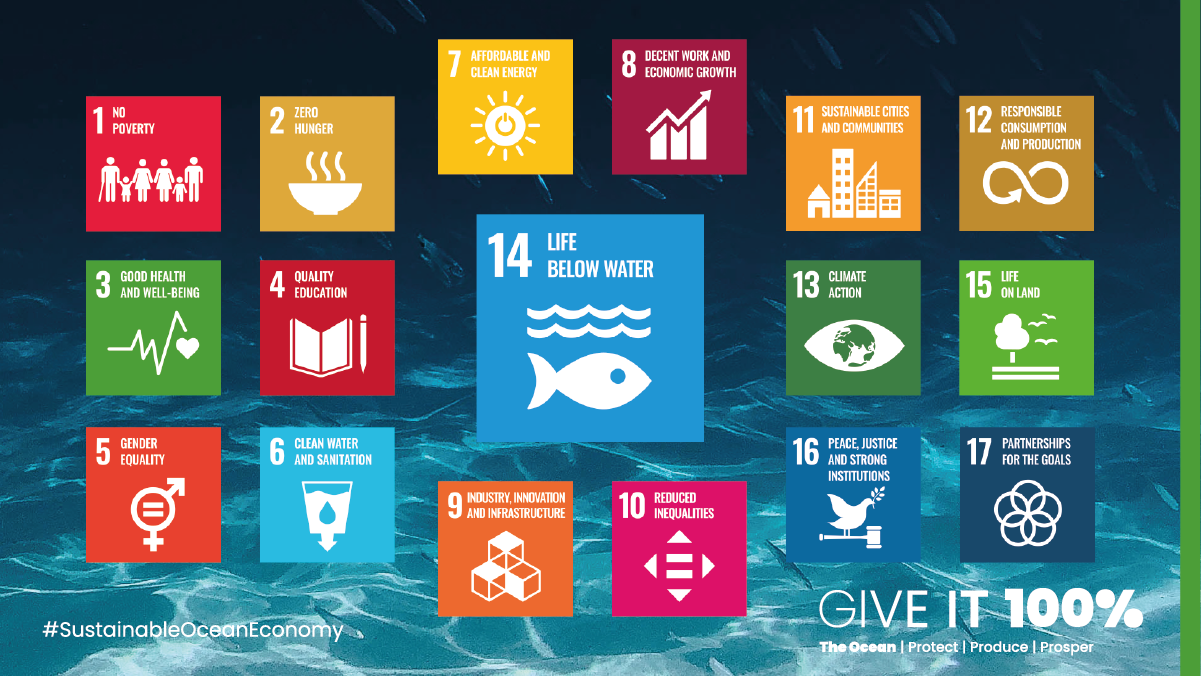A BIG ANNOUNCEMENT FOR PLANET OCEAN
Last week The High Level Panel for a Sustainable Ocean Economy (Ocean Panel) released the ‘Transformations for a Sustainable Ocean Economy: A vision for Protection, Production and Prosperity’ Report. The report was launched on December 2nd, coinciding with national launch events held by Ocean Panel member states across the globe.
The Ocean Panel is made up of leaders from 14 countries including Australia, Canada, Chile, Fiji, Ghana, Indonesia, Jamaica, Japan, Kenya, Mexico, Namibia, Norway, Palau and Portugal. Combined, they make up 40% of the world’s coastlines, 30% of offshore exclusive economic zones, 20% of the world’s fisheries and 20% of the world’s shipping fleet.
This report comes on the back of a series of ‘Blue Papers’ published by the Ocean Panel in conjunction with the World Resources Institute. The 17 Blue Papers cover areas such as climate change, food and nutrition, emerging ocean technologies, renewable energy and more. The Blue Papers can be viewed here.
With the release of this report, the member countries of the Ocean Panel have committed to sustainably manage 100% of the oceans under their national jurisdictions by 2025, an area that comprises nearly 30 million square kilometres (30%) of the ocean. The Transformation report designates five key areas of transformation including Ocean Health, Ocean Wealth, Ocean Finance, Ocean Equity and Ocean Knowledge. Along with the 100% commitment, the report outlines 74 priority actions.
Coinciding with the Transformations report the Ocean Panel launched the ‘Give it 100%’ campaign, in which member states held events declaring their commitment to the goal to manage 100% of the oceans under their care sustainably by 2025 aiming to galvanise the political will to carry out the actionable agenda. The Panel is encouraging leaders of other coastal nations to join the commitment to the 100% goal with the intention for all Exclusive Economic Zones (EEZ) to be sustainably managed by 2030.
The ocean covers 70% of the Earth, produces half of the world’s oxygen and absorbs about a quarter of global carbon dioxide emissions, provides food to three billion people, and facilitates the transport of 90% of goods. As climate change threatens to increase temperatures and sea levels, overfishing, illegal fishing, plastic pollution, greenhouse gas emissions and resource-intensive development endangers marine ecosystems, hinders biodiversity and diminishes the capacity of the ocean to provide nutritious food, jobs, and medicines for billions of people globally.
Targets include setting 30% of the ocean aside as Marine Protected Areas by 2030 as well as committing to over 74 priority actions outlined in the Transformations Report. The ‘Ocean Action Agenda’ outlines actionable and viable pathways for member states which if enacted effectively the panel estimates could result in a six-fold increase in food production from the ocean, forty times more renewable energy, make great leaps in eradicating poverty by producing six times more sustainable seafood and make up one-fifth of the required reduction in global greenhouse gas (GHG) emissions called for in the Paris Climate Agreement. Furthermore, these targets will contribute robustly in advancing the Sustainable Development Goals.
A ‘blue recovery’ from the COVID-19 pandemic has been identified as a huge opportunity for job creation, economic relief, and increasing resilience and sustainability. Ocean Panel research demonstrates that every $1 invested in the ocean can bring about $5 in social, health, environmental and economic benefits. Secretary General of the United Nations Antonio Guterres expressed “we need better management and sustainable use of the ocean’s resources to foster not only a green recovery but a blue recovery from the COVID-19 pandemic”.
In Australia’s national launch event for the ‘Give it 100%’ campaign held last week, Prime Minister Scott Morrison and Environment Minister Sussan Ley affirmed their commitment to the goals set out in the report.
“We’ve made big investments to protect our coral reefs, we’re banning the export of plastic waste, we’ve declared one-third of our national waters as marine parks – well above global targets.
“Although we benefit from our oceans, we understand we have a greater responsibility to it as well. Right now the ocean is under pressure – habitat loss, plastic, pollution, overfishing and of course climate change – putting at risk so much,” Morrison said.
As a proud member of the High Level Panel Advisory Network, which is made up of more than 135 private sector, NGO and intergovernmental organisations across 35 countries, Ocean Impact Organisation is dedicated to advancing the goals of the Panel and holding our leadership accountable to their commitments.
We would like to reiterate the Ocean Panel’s call to action: it is our collective responsibility to bring about a sustainable ocean economy which will restore the integrity of our ocean and empower communities to build an ocean economy that will benefit people and the planet.
For more information and to read the report visit: www.oceanpanel.org




